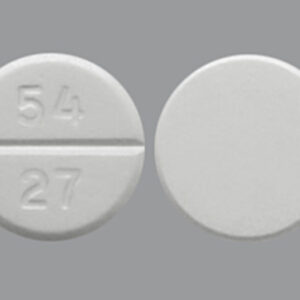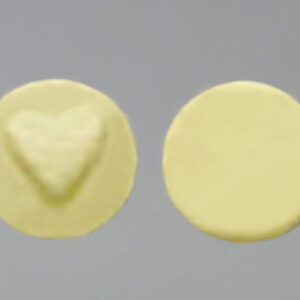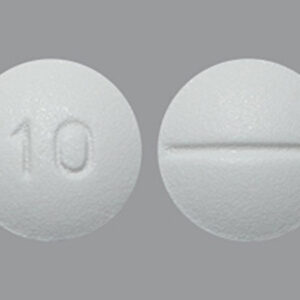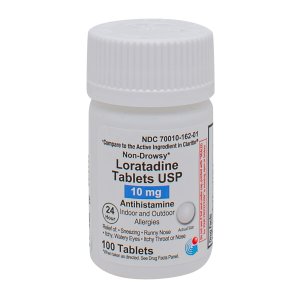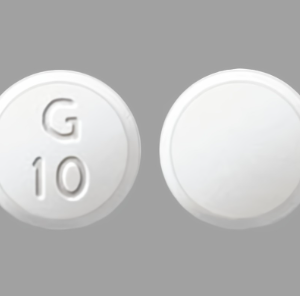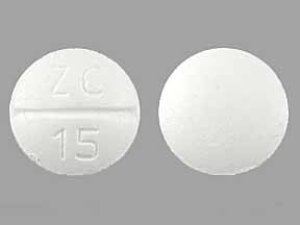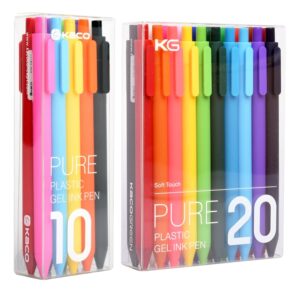Recently cleared IVD devices, including Antimicrobial Susceptibility Test (AST) devices, include:
February 15, 2024: The FDA cleared the PBC [positive blood culture] Separator with Selux Antimicrobial Susceptibility Testing (AST) System from Selux Diagnostics, Inc. to be marketed in the U.S. The PBC Separator with Selux AST System is an automated lab inoculation preparation system intended for use with positive blood culture samples that can be used for quantitative in vitro antimicrobial susceptibility testing without the traditional overnight subculture.
July 6, 2023: The FDA cleared HardyDisk AST Sulbactam/Durlobactam 10/10μg (SUD20) (K231568), a disk diffusion assay for in vitro susceptibility testing of Sulbactam/Durlobactam, a new drug approved for the treatment of hospital-acquired bacterial pneumonia (HABP) and ventilator-associated bacterial pneumonia (VABP) caused by Acinetobacter baumannii-calcoaceticus complex. This assay was cleared just 6 weeks after new drug approval.
July 5, 2023: The FDA cleared VITEK 2 AST-Gram Positive Daptomycin (≤0.12 – ≥8 µg/mL) (K230864), a miniaturized, abbreviated and automated version of the classic broth dilution method to determine the minimum inhibitory concentration of daptomycin, an antibiotic with updated breakpoints for testing Enterococcus faecalis. In addition, claims for testing vancomycin-resistant E. faecalis were added due to FDA recognition of breakpoints.
May 4, 2023: The FDA cleared the BD Kiestra Methicillin-resistant Staphylococcus aureus (MRSA) Application (K213280), an in vitro diagnostic software program for use with the BD Kiestra Laboratory Automation Solution for the qualitative assessment of microbial colonies on chromogenic culture media to aid in the prevention and control of methicillin-resistant Staphylococcus aureus (MRSA) infection.
April 19, 2023: The FDA cleared the Selux AST System (K211748) for use with the Selux Gram-Negative Comprehensive Panel through the 510(k) premarket notification pathway. This follows clearance (K211759) of the system earlier this year for use with the Selux Gram-Positive Comprehensive Panel. The Selux AST System is an in vitro diagnostic test system used for antimicrobial susceptibility testing. This testing is performed to determine whether an organism is susceptible or resistant to an antimicrobial drug to help physicians select the appropriate drug to treat an infection. The Selux AST System allows for simultaneous testing of a larger number of drugs and drug concentrations than previous systems. The two panels also have the ability to expand to incorporate new drugs in the future. Susceptibility testing systems use FDA-recognized cut-off values (referred to as susceptibility test interpretive criteria or breakpoints), to indicate whether the drug is likely to be effective (drug concentrations below the cut-off are likely to be effective, and drug concentrations above the cut-off are not likely to be effective). Since breakpoints can be updated to maintain clinical success of the drug, the Selux AST System was also cleared with a prospective change protocol, allowing the developer to update breakpoints without an additional premarket submission to the FDA. This is the latest example of the FDA’s ongoing commitment to advance access to safe and effective antimicrobial susceptibility testing intended to aid healthcare professionals in making more informed decisions for patients.
March 21, 2023: The FDA cleared the Sensititre 20–24-hour Haemophilus influenzae/Streptococcus pneumoniae MIC or Breakpoint Susceptibility System with Delafloxacin in the dilution range of 0.00025-8 µg/ml (Streptococcus pneumoniae) and 0.000125-8 µg/ml (Haemophilus influenzae) (K223844) a miniaturized version of the classic broth dilution method to determine the minimum inhibitory concentration of delafloxacin, an antibiotic approved for the treatment of community-acquired bacterial pneumonia (CABP) and acute bacterial skin and skin structure infections (ABSSSI). Claims were added for testing Streptococcus pneumoniae and Haemophilus influenzae isolates recovered from CABP.
March 20, 2023: The FDA cleared the Colibri System (K223245), an automated pre-analytical processor that picks isolated colonies to prepare MALDI-TOF MS target slides for bacterial identification and microbial suspensions at a known concentration for antimicrobial susceptibility testing. This system is an updated workflow from the previously cleared semi-automated system.
March 10, 2023: The FDA cleared the Sensititre YeastOne Susceptibility System with Fluconazole in the dilution range of 0.12-128 μg/mL (K221198), a miniaturized version of the classic broth dilution method to determine the minimum inhibitory concentration of fluconazole, an antifungal agent with updated breakpoints for testing C. albicans, C. glabrata, and C. parapsilosis.
March 9, 2023: The FDA cleared the VITEK 2 AST-Gram Negative Fosfomycin (≤4 – ≥256 µg/mL) (K222430), a miniaturized, abbreviated and automated version of the classic broth dilution method to determine the minimum inhibitory concentration of Fosfomycin, an antibiotic used for the treatment of urinary tract infection.
February 16, 2023: The FDA cleared the VITEK 2 AST-Gram Negative Plazomicin (≤0.5 – ≥16 μg/mL) (K223478), a miniaturized, abbreviated and automated version of the classic broth dilution method to determine the minimum inhibitory concentration of Plazomicin, an antibiotic used for the treatment of complicated urinary tract infection.
February 9, 2023: The FDA cleared the VITEK 2 AST-Gram Negative Cefazolin (≤1 – ≥32 μg/mL) (K222073), a miniaturized, abbreviated and automated version of the classic broth dilution method to determine the minimum inhibitory concentration of Cefazolin, an antibiotic used for the treatment of various infections as well as for perioperative prophylaxis to reduce incidence of certain postoperative infections.
February 3, 2023: The FDA cleared the VITEK 2 Streptococcus Tetracycline (≤ 0.25 – ≥ 16 μg/ml) (K223481), a miniaturized, abbreviated and automated version of the classic broth dilution method to determine the minimum inhibitory concentration of Tetracycline an antibiotic with updated breakpoints for testing Streptococcus pneumoniae, Streptococcus pyogenes (Group A Beta-Hemolytic streptococci) and Streptococcus spp. β-Hemolytic Group species.
January 27, 2023: The FDA cleared the VITEK 2 AST-Gram Positive Moxifloxacin (≤0.25 – ≥ 8μg/ml) (K220803), a miniaturized, abbreviated and automated version of the classic broth dilution method to determine the minimum inhibitory concentration of Moxifloxacin an antibiotic with updated breakpoints for testing Enterococcus faecalis, Staphylococcus aureus and other Staphylococcus species.
January 20, 2023: The FDA cleared the Sensititre YeastOne Susceptibility System with Caspofungin in the dilution range of 0.015-16ug/ml (K221899), a miniaturized version of the classic broth dilution method to determine the minimum inhibitory concentration of Caspofungin, an antifungal agent with updated breakpoints for testing Candida spp.
January 18, 2023: The FDA cleared the Selux AST System; Model AST Gen 1.0 (K211759), a semi-automated and miniaturized version of the classic broth dilution method to simultaneously determine the minimum inhibitory concentration of 15 antimicrobials against select Enterococcus and Staphylococcus species, representing 35 different antimicrobial/organism combinations using the Selux Gram Positive Panel. Unlike traditional 96-well panels, the 384-well panel facilitates addition of new antimicrobials for testing as they become available.
December 21, 2022: The FDA cleared the BD BBL Sensi-Disc Cefiderocol 30ug (FDC-30) (K221826), a disk diffusion assay for in vitro susceptibility testing of Cefiderocol, an antibiotic recently approved for the treatment of complicated urinary tract infections.
October 13, 2022: The FDA cleared the VITEK 2 AST-Gram Positive Cefoxitin (K220805), a miniaturized, abbreviated and automated version of the doubling dilution technique designed to predict mecA-mediated oxacillin resistance in Staphylococcus spp.
October 5, 2022: The FDA cleared an expanded indication for the Colibrí System (K220546), a semi-automated pre-analytical processor, to prepare microbial suspensions at a known concentration for antimicrobial susceptibility testing
September 15, 2022: The FDA cleared the Thermo Scientific Oxoid Omadacycline Disc (30 ug) OMC30 (K203336), a disk diffusion assay for in vitro susceptibility testing of omadacycline, a new antibiotic for the treatment of community-acquired bacterial pneumonia (CABP) and acute bacterial skin and skin structure infections (ABSSSI).
August 8, 2022: The FDA cleared the VITEK 2 AST- Gram Positive Telavancin (≤0.015 – ≥ µg/mL) (K212243), a miniaturized, abbreviated and automated version of the doubling dilution technique for determining the minimum inhibitory concentration of telavancin, an antibiotic used for the treatment of complicated skin and skin structure infections (cSSSI) and hospital-acquired and ventilator-associated bacterial pneumonia (HABP/VABP).
July 12, 2022: The FDA cleared the VITEK 2 AST-Yeast Caspofungin (≤0.125 – ≥8 µg/mL) (K213899), a miniaturized, abbreviated and automated version of the classic broth dilution method to determine the minimum inhibitory concentration of caspofungin, an antifungal agent with updated breakpoints for testing Candida spp.
June 3, 2022: The FDA cleared the VITEK 2 AST-Gram Negative Omadacycline (≤0.25 – ≥16 µg/mL) (K213931), a miniaturized, abbreviated and automated version of the classic broth dilution method to determine the minimum inhibitory concentration of omadacycline, a new antibiotic for the treatment of community-acquired bacterial pneumonia (CABP) and acute bacterial skin and skin structure infections (ABSSSI).
April 29, 2022: The FDA granted the De Novo request for the BioFire Joint Infection (JI) Panel (DEN200066), a multiplexed nucleic-acid-based, in vitro diagnostic test intended for the simultaneous qualitative detection and identification of multiple bacterial and yeast nucleic acids and select antimicrobial resistance genes from synovial fluid obtained from individuals suspected to have a joint infection.
April 27, 2022: The FDA cleared the EPlex Blood Culture Identification Gram Negative (BCID-GN) Panel (K213236), a multiplexed nucleic acid test intended for simultaneous qualitative detection and identification of multiple potentially pathogenic gram-negative bacterial organisms and select determinants associated with antimicrobial resistance, as well as detect several gram-positive bacteria and several Candida species all from positive blood culture. Claims were added to include the detection of nucleic acids from additional strains of E. coli, Citrobacter, Enterococcus, and Pseudomonas aeruginosa.
April 14, 2022: The FDA cleared the VITEK 2 AST-Gram Negative Ciprofloxacin (≤0.06 – ≥4 µg/mL) (K214023), a miniaturized, abbreviated and automated version of the classic broth dilution method to determine the minimum inhibitory concentration of ciprofloxacin, an antibiotic with updated breakpoints for testing Enterobacterales and P. aeruginosa.
February 25, 2022: The FDA cleared the VITEK 2 AST-Yeast Fluconazole (≤0.5 – ≥64 µg/mL) (K213241), a miniaturized, abbreviated and automated version of the classic broth dilution method to determine the minimum inhibitory concentration of fluconazole, an antifungal agent with updated breakpoints for testing Candida albicans, Candida parapsilosis, and Candida tropicalis.
February 4, 2022: The FDA cleared the VITEK 2 AST-Gram Positive Linezolid (≤0.5 – ≥8 µg/mL) (K212849), a miniaturized, abbreviated and automated version of the classic broth dilution method to determine the minimum inhibitory concentration of linezolid, an antibiotic with updated breakpoints for testing Staphylococcus species
December 20, 2021:The FDA cleared the Sensititre 18-24 Hour MIC or Breakpoint Susceptibility System with Cefiderocol in the Dilution Range of 0.03-64 µg/mL (K203741), a miniaturized version of the classic broth dilution method to determine the minimum inhibitory concentration of Cefiderocol with additional indicated species (Acinetobacter baumannii and Serratia marcescens) and using updated breakpoints for members of the Enterobacterales order.
December 15, 2021:The FDA cleared the Sensititre YeastOne Susceptibility System with Voriconazole in the Dilution Range of 0.008 – 8 μg/mL (K211539), a micro-version of the broth dilution susceptibility test performed in multi-well microtiter plates to determine the minimum inhibitory concentration of voriconazole, an antifungal agent with new breakpoints and indications for testing Candida species.
November 12, 2021: The FDA cleared the ETEST Fosfomycin (FO) (0.032-512 µg/mL) (K210757), a gradient diffusion assay to determine the minimum inhibitory concentration of Fosfomycin, an antibiotic used for the treatment of urinary tract infection.
October 28, 2021: The FDA cleared the APAS Independence with IC Chromogenic MRSA BD Analysis Module and the APAS Independence with IC Chromogenic MRSA TFS/S Analysis Module (K200839), an in vitro diagnostic test system for the automated assessment of microbial colonies on chromogenic culture media to aid in screening for methicillin-resistant Staphylococcus aureus (MRSA).
October 28, 2021: The FDA cleared the VITEK 2 AST- Streptococcus Cefotaxime (≤0.125 – ≥8 µg/mL) (K210287), an abbreviated and automated version of a broth microdilution assay to determine the minimum inhibitory concentration of Cefotaxime with Streptococcus species.
October 27, 2021: The FDA cleared the Thermo Scientific Oxoid Lefamulin Disc (20µg) LMU20 (K210873), a disk diffusion assay for in vitro susceptibility testing of Lefamulin, a first-in-class antibiotic for the treatment of community-acquired bacterial pneumonia.
October 20, 2021: The FDA cleared the MTS Piperacillin-Tazobactam 0.016/4 – 256/4 µg/mL (K211672), a gradient diffusion assay to determine the minimum inhibitory concentration of Piperacillin-Tazobactam, a combination antibiotic that is used to treat various bacterial infections.
September 30, 2021: The FDA cleared the Acuitas AMR Gene Panel (K191288), a qualitative nucleic acid-based, highly multiplexed in vitro diagnostic test for the simultaneous detection and identification of 28 genetic determinants of resistance to 8 antibiotic groups (aminoglycosides, carbapenems, cephalosporins, fluoroquinolones, penicillins, sulfonamides, trimethoprim, vancomycin) among 19 organism species for a total of 117 unique organism/gene combinations being reported. The Acuitas AMR Gene Panel includes an extension of the device labeling (electronic user guide) that provides additional supporting information about performance characteristics and interpretation of genetic determinants associated with antimicrobial resistance for the Acuitas AMR Gene Panel.
September 14, 2021: The FDA cleared the VITEK 2 AST-Gram Positive Fosfomycin (≤8 – ≥256 µg/mL) (K202396), an abbreviated and automated version of a broth microdilution assay to determine the minimum inhibitory concentration of Fosfomycin, an antibiotic used for the treatment of urinary tract infection.
July 30, 2021: The FDA cleared the Thermo Scientific Oxoid Cefiderocol Disc (30ug) FDC30 (K203700), a disk diffusion assay for in vitro susceptibility testing of Cefiderocol, a newer antibiotic for the treatment of complicated urinary tract infection.
July 23, 2021: The FDA cleared the Sensititre 20-24 hour Haemophilus influenzae /Streptococcus pneumoniae MIC or Breakpoint, Susceptibility System with Autoread Dtest (containing erythromycin at 1 ug/mL and clindamycin at 0.5 ug/mL) (K202612), a miniaturized version of the classic broth dilution method that can provide both qualitative and quantitative susceptibility results from Haemophilus influenza, Streptococcus pneumoniae and Streptococcus species when tested with erythromycin or clindamycin. The Dtest detects for inducible clindamycin resistance in Streptococcus spp. resistant to erythromycin.
July 9, 2021: The FDA cleared the VITEK 2 AST-Gram Negative Meropenem (≤0.25 – ≥16 µg/mL) (K201675), an abbreviated and automated version of a broth microdilution assay to determine the minimum inhibitory concentration of Meropenem, an antibiotic for which FDA recently updated interpretive criteria.
June 14, 2021: The FDA cleared the VITEK 2 AST-Gram Negative Imipenem/Relebactam (<0.25/4 - >16/4 µg/mL) (K211136), an abbreviated and automated version of a broth microdilution assay to determine the minimum inhibitory concentration of Imipenem/Relebactam. A claim was added to the previously cleared device to include a new indicated species, Acinetobacter calcoaceticus-baumannii complex.
May 27, 2021: The FDA cleared the MicroScan MICroSTREP Plus Panels With Tetracycline (0.06-16 µg/mL) (K202423), an abbreviated version of a broth microdilution assay to determine the minimum inhibitory concentration of Tetracycline with aerobic streptococci. Performance data was updated to include reanalysis of MIC results for Streptococcus pneumoniae with tetracycline using currently recognized interpretive criteria.
November 16, 2020: MicroScan Dried Gram-Negative MIC/Combo Panels with Ceftazidime (Caz) (0.5-64 μg/mL) (K202343), an abbreviated version of a broth microdilution assay to determine the minimum inhibitory concentration of Ceftazidime, a antibacterial used to treat lower respiratory tract infections, skin and skin-structure infections, bacterial septicemia, bone and joint infections, gynecologic infections, intra-abdominal infections and central nervous system infections
September 28, 2020: VITEK 2 AST-Gram Negative Ceftazidime (≤0.5 – ≥32 µg/mL) (K193299) an abbreviated and automated version of a broth microdilution assay to determine the minimum inhibitory concentration of Ceftazidime, a antibacterial used to treat lower respiratory tract infections, skin and skin-structure infections, bacterial septicemia, bone and joint infections, gynecologic infections, intra-abdominal infections and central nervous system infections.
September 15, 2020: Accelerate Pheno System, Accelerate PhenoTest BC Kit (K192665) a multiplexed in vitro diagnostic test utilizing both qualitative nucleic acid fluorescence in situ hybridization (FISH) identification and quantitative antimicrobial susceptibility methods directly from positive blood culture samples. Claims were added for antimicrobial susceptibility testing of Pseudomonas aeruginosa with ceftazidime, cefepime, meropenem, piperacillin/tazobactam, and aztreonam.
June 29, 2020: Addition of Acinetobacter spp. for testing with the MicroScan Dried Gram-Negative MIC/Combo Panels with Meropenem (Mer) (0.004 – 32 µg/mL) (K201423), an abbreviated version of a broth microdilution assay to determine the minimum inhibitory concentration of Meropenem, an antibiotic for which FDA recently updated the susceptibility test interpretive criteria on the STIC website to include interpretive criteria when testing this organism group.
May 7, 2020: ETEST Plazomicin (0.016 – 256 µg/mL) (K200512) a gradient diffusion assay to determine the minimum inhibitory concentration of Plazomicin, an antibiotic for the treatment of complicated urinary tract infection
April 28, 2020: VITEK 2 AST-Gram Positive Delafloxacin (≤0.015 – ≥1 µg/mL) (K200590) an abbreviated and automated version of a broth microdilution assay to determine the minimum inhibitory concentration of Delafloxacin, an antibiotic approved for the treatment of community-acquired bacterial pneumonia (CABP) and acute bacterial skin and skin structure infections (ABSSSI)
April 6, 2020: MTS Lefamulin 0.016 – 256 µg/mL (K200308) a gradient diffusion assay to determine the minimum inhibitory concentration of Lefamulin, a first-in-class antibiotic for the treatment of community-acquired bacterial pneumonia.
March 20, 2020: MTS Omadacycline 0.002 – 32 µg/mL (K200180) a gradient diffusion assay to determine the minimum inhibitory concentration of Omadacycline, a new antibiotic for the treatment of community-acquired bacterial pneumonia (CABP) and acute bacterial skin and skin structure infections (ABSSSI).
March 18, 2020: MicroScan Dried Gram Negative MIC/Combo Panels with Ciprofloxacin (Cp) (0.004 – 8 µg/mL) (K193536) an abbreviated version of a broth microdilution assay to determine the minimum inhibitory concentration of Ciprofloxacin, an antibiotic for which FDA recently recognized revised interpretive criteria and published those on the FDA STIC webpage.
March 18, 2020: BioFire Blood Culture Identification 2 (BCID2) Panel (K193519) a multiplexed nucleic acid-based test for the detection and identification of multiple bacterial and yeast nucleic acids and select genetic determinants associated with antimicrobial resistance direct from positive blood culture samples.
March 13, 2020: VITEK 2 AST-Gram Negative Imipenem/Relebactam (≤0.25/4 – ≥16/4 µg/mL) (K193572) abbreviated and automated version of a broth microdilution assay to determine the minimum inhibitory concentration of Imipenem/Relebactam, an antibiotic approved eight months ago for the treatment of complicated urinary tract infections and complicated intra-abdominal infections.
March 12, 2020: Sensititre 18-24 hour MIC or Breakpoint Susceptibility System with Cefiderocol in the dilution range of 0.03-64 µg/mL (K193538) an abbreviated and automated version of a broth microdilution assay to determine the minimum inhibitory concentration Cefiderocol, an antibiotic approved four months ago for the treatment of complicated urinary tract infections.
March 3, 2020: MicroScan Dried Gram-Negative MIC/Combo Panels with Levofloxacin (Lvx) (0.008 – 16 µg/mL) (K193358) an abbreviated version of a broth microdilution assay to determine the minimum inhibitory concentration of Levofloxacin, an antibiotic for which FDA recently recognized revised interpretive criteria and published those on the FDA STIC webpage.
January 8, 2020: Sensititre 20-24 hour Haemophilus influenzae/Streptococcus Pneumoniae MIC or Breakpoint Susceptibility System with Lefamulin in the dilution range of 0.008 – 16 µg/mL (K193024) a broth-microdilution assay that was cleared shortly after new drug approval for Lefamulin, a first-in-class antibiotic for the treatment of community-acquired bacterial pneumonia.
January 23, 2020: HardyDisk AST Cefiderocol 30µg (FDC30) (K193504) a disk diffusion assay that was the first AST device for Cefiderocol, an antibiotic for the treatment of complicated urinary tract infection. This device was cleared just eight weeks after new drug approval.
December 20, 2019: The FDA recently cleared the Unyvero LRT BAL Application (K191967), a multiplex molecular test for the detection and identification of nucleic acid sequences from 20 bacterial/fungal pathogens and 10 antibiotic resistance markers to aid in the diagnosis of pneumonia. It is the first multiplexed pneumonia panel that identifies Pneumocystis jirovecii, a leading cause of pneumonia in immunocompromised patients.
December 5, 2019: FDA authorizes marketing of diagnostic test that uses novel technology to detect MRSA bacteria – The FDA authorized marketing of a new diagnostic test based on bacterial viability and novel technology to detect Methicillin-resistant Staphylococcus aureus (MRSA) bacterial colonization, a widespread cause of hospital-acquired infections. The cobas vivoDx MRSA diagnostic test may allow health care professionals to evaluate patients for colonization with MRSA bacteria more quickly than traditional culture-based techniques when such testing is needed.
November 26, 2019: The FDA cleared the AST device bioMerieux ETEST Delafloxacin (DFX) 0.002-32 μg/mL (K192738) a gradient diffusion assay for testing Delafloxacin
November 14, 2019: The FDA cleared the AST device MicroScan Dried Gram Negative MIC/Combo Panels with Meropenem (Mer) (0.004-32 µg/mL) (K192355) a broth-microdilution assay for testing Meropenem.
November 6, 2019: The FDA recently cleared AST devices for testing newly approved antimicrobial agents:
October 31, 2019: The FDA cleared the AST device MTS Ampicillin-Sulbactam 0.016/0.008 – 256/128 µg/mL (K192345) a gradient diffusion assay for testing Ampicillin-Sulbactam.
October 2, 2019: The FDA cleared NG Test CARBA 5 (K191889), the first rapid lateral flow immunochromatographic assay that detects and differentiates between five common types of carbapenemase enzymes (KPC, OXA, NDM, VIM, IMP). The assay tests pure colonies after growth on solid media, with results obtained in 15 minutes. The test is intended as an aid infection control.
September 25, 2019: The FDA cleared ARIES MRSA assay (K191742), another nucleic acid amplification test (NAAT) for MRSA detection from nasal swabs. This and similar assays are used as an aid in the prevention and control of MRSA infections in healthcare settings.
Source


